Moving to the North Shore of Massachusetts
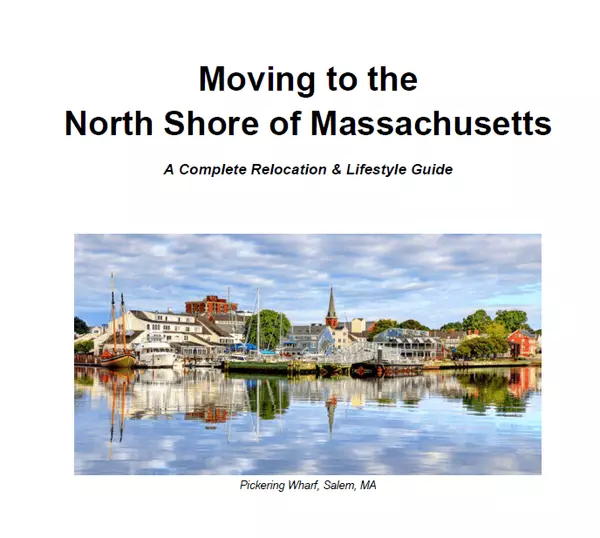
Moving to the North Shore of Massachusetts A Complete Relocation & Lifestyle Guide Thinking about moving to the North Shore?Whether you’re relocating from out of state, leaving Boston, or moving within Massachusetts, choosing the right town—and the right neighborhood—matters. This free, in-depth PDF
Read More-

If you’re thinking about relocating and buying a home, one question probably sits at the top of your list: Where is the best place in the U.S. to raise a family? According to WalletHub’s Best & Worst States to Raise a Family in 2026 report, the answer is clear: 👉 Massachusetts ranks #1 in the entir
Read More 5 Tips for Choosing the Right Estate AgentFive Tips for Choosing the Right Estate Agent

Selling a home is one of the biggest financial decisions most people will ever make. The agent you choose doesn’t just list your property—they influence pricing, marketing, negotiations, timelines, and ultimately how much money you walk away with. Here are five essential tips to help you choose th
Read More2026 Real Estate Outlook: What Buyers, Sellers & Investors Should Know

🏡 2026 Real Estate Outlook: What Buyers, Sellers & Investors Should Know A practical look at national 2026 housing trends—with a focused lens on Massachusetts, where inventory, affordability, and job-driven demand keep the market behaving like its own micro-economy. As we step into 2026, housing ma
Read More5 Essex County Massachusetts neighborhoods where $700K tends to stretch the farthest

With a $700,000 single-family budget in Essex County, the “best value” pockets right now tend to be places where you’re buying into (1) solid schools, (2) a real commute option (train/Route 128/93 access), and (3) towns that aren’t the priciest on the North Shore, but still ride the same long-term d
Read MoreWelcome to the North Shore: A Guide to Living in Danvers, MA

Welcome to the North Shore: A Guide to Living in Danvers, MA Nestled just 20 miles north of Boston, Danvers (originally known as Salem Village) is a town where colonial history meets modern suburban convenience. Whether you are a history buff, a growing family, or a professional looking for a manage
Read MoreWhat Are ADUs & Why They Matter in Massachusetts | 2025/2026 Update

Accessory Dwelling Units (ADUs) are small residential living spaces located on the same lot as a principal home — like a finished basement apartment, an attached addition, or a detached backyard cottage. They’re also commonly called granny flats, in-law apartments, or secondary suites. A New Era for
Read MoreLatent Defects in Massachusetts Real Estate | Seller Disclosure Laws

Selling a home in Massachusetts comes with legal responsibilities that many sellers underestimate. One of the most common—and costly—mistakes sellers make is failing to disclose latent defects. In Massachusetts, sellers who knowingly fail to disclose hidden material defects can face serious legal co
Read MoreWhy Home Sellers Shouldn’t Choose an Agent Based on Price Alone: The Truth About “Buying a Listing”

When selling your home, choosing the right real estate agent is one of the most important decisions you’ll make. Many homeowners are tempted to hire the agent who recommends the highest listing price — but that can be a costly mistake. Some agents, especially inexperienced ones, use a tactic called
Read MoreLiving in Beverly, Massachusetts in 2025/2026 – Pros & Cons

Thinking about moving to the North Shore of Massachusetts? Beverly, MA, often called the “Garden City,” continues to attract homebuyers in 2025 thanks to its coastal charm, thriving community, and convenient location. Whether you’re considering buying a home, investing in real estate, or simply look
Read MoreWhat are Massachusetts Homeowners REAL Options in 2026?
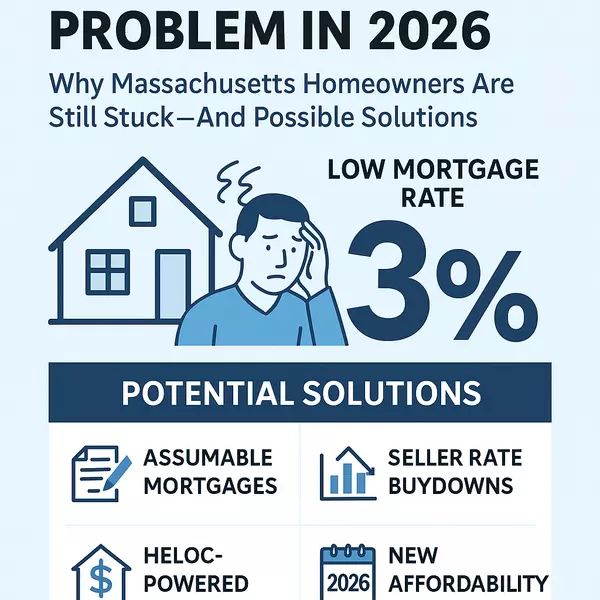
The 3% Mortgage Problem: Why So Many Massachusetts Homeowners Are Still Stuck—And What Their Real Options Are in 2026 By Jim Armstrong • ALUXETY Real Estate & Armstrong Field Group If you’re a homeowner on the North Shore or anywhere in Massachusetts, chances are you’re still holding onto a 2–3% m
Read MoreWhat Are Portable Mortgages—and Could They Boost Housing Inventory in the U.S.?
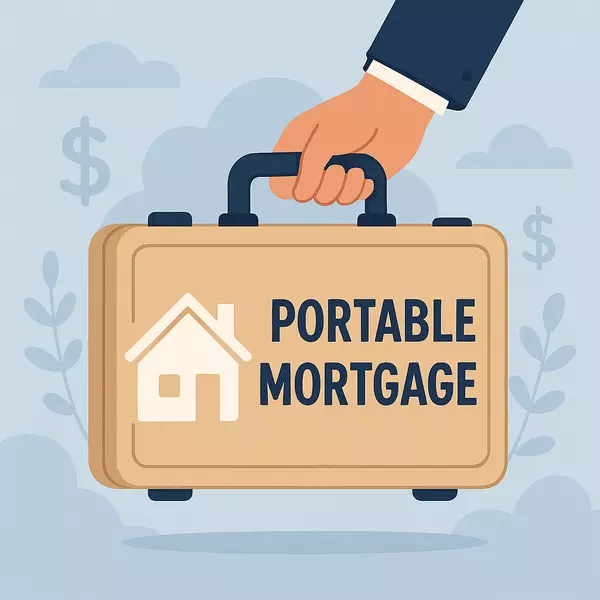
What Are Portable Mortgages—and Could They Boost Housing Inventory in the U.S.? In today’s real estate market, millions of American homeowners feel “locked in” by historically low interest rates. With mortgage rates now far higher than the 2–3% loans many secured between 2020 and 2022, even families
Read MoreSmart Home Features That will Actually Increase Your Property Value in 2026

Smart Home Features That Will Actually Increase Your Property Value in 2026 The smart home revolution has moved far beyond novelty gadgets and voice-activated light bulbs. In 2026, homebuyers will expect a certain level of technological integration, and the right smart features can significantly boo
Read MoreHidden Costs of Homeownership Nobody Tells You About
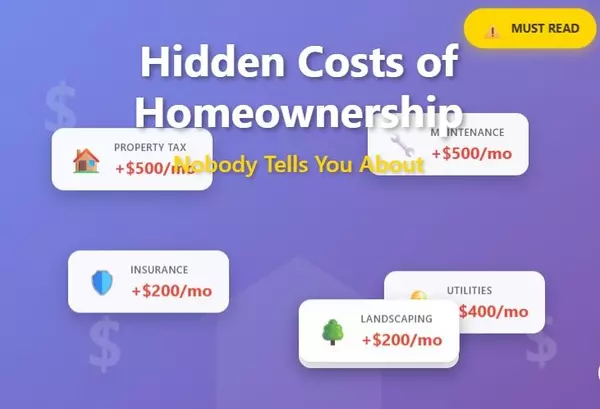
Hidden Costs of Homeownership Nobody Tells You About When you're shopping for your first home, everyone focuses on the big number: the purchase price. Your lender pre-approves you for a certain amount, you find a house within that budget, and you feel confident you can afford it. Then you move in, a
Read MoreMoving to Salem, MA: Your Complete Guide to Living in the Witch City

Moving to Salem, MA: Your Complete Guide to Living in the Witch City Salem, Massachusetts is a city where history meets modern coastal living. While it's famously known for the 1692 witch trials, today's Salem offers so much more: a thriving arts scene, exceptional dining, waterfront living, and a t
Read MoreSelling Your Home While Living in It: A Survival Guide
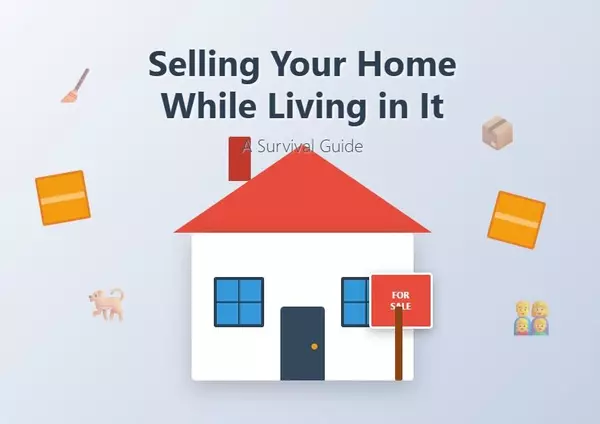
Selling Your Home While Living in It: A Survival Guide Let's be honest: selling your home while you're still living in it can feel like running a marathon while juggling flaming torches. Between last-minute showing requests, keeping everything spotless, and maintaining some semblance of normal life,
Read MoreFirst-Time Buyer Discovery Questions - Things to Think About Before Talking with a REALTOR

Before you sit down with a REALTOR for the first time to talk about buying a home, there are some questions you should think about that will help you and your agent to locate that perfect home. 🏡 First-Time Homebuyer Lifestyle & Goals Questionnaire 1. Lifestyle & Daily Routine “How do you want you
Read MoreMoving to the North Shore of Massachusetts | Local Living & Real Estate Guide

Moving to the North Shore of Massachusetts: Your Ultimate Relocation Guide Thinking about moving to the North Shore of Massachusetts? You’re not alone. This scenic region—stretching from Salem to Newburyport—offers seaside charm, walkable neighborhoods, and quick access to Boston. Whether you’re s
Read MoreWhy Waiting for Mortgage Rates to Drop Could Cost You More Than You Think

Why Waiting for Mortgage Rates to Drop Could Cost You More Than You Think It’s tempting to think, “I’ll just wait until mortgage rates go down before I buy a home.” On the surface, it seems logical — who wouldn’t want a lower monthly payment? But when you dig deeper, waiting for that perfect rate co
Read MoreWhat Is Going to Happen with the Housing Market in 2026? (North Shore, Massachusetts)

What Is Going to Happen with the Housing Market in 2026? (North Shore, Massachusetts) If you’ve been watching the North Shore market—Beverly, Salem, Danvers, Peabody, Marblehead, Gloucester, and friends—you’ve seen a stubborn mix of low inventory, sticky prices, and buyers waiting for rates to break
Read More
Categories
Recent Posts













